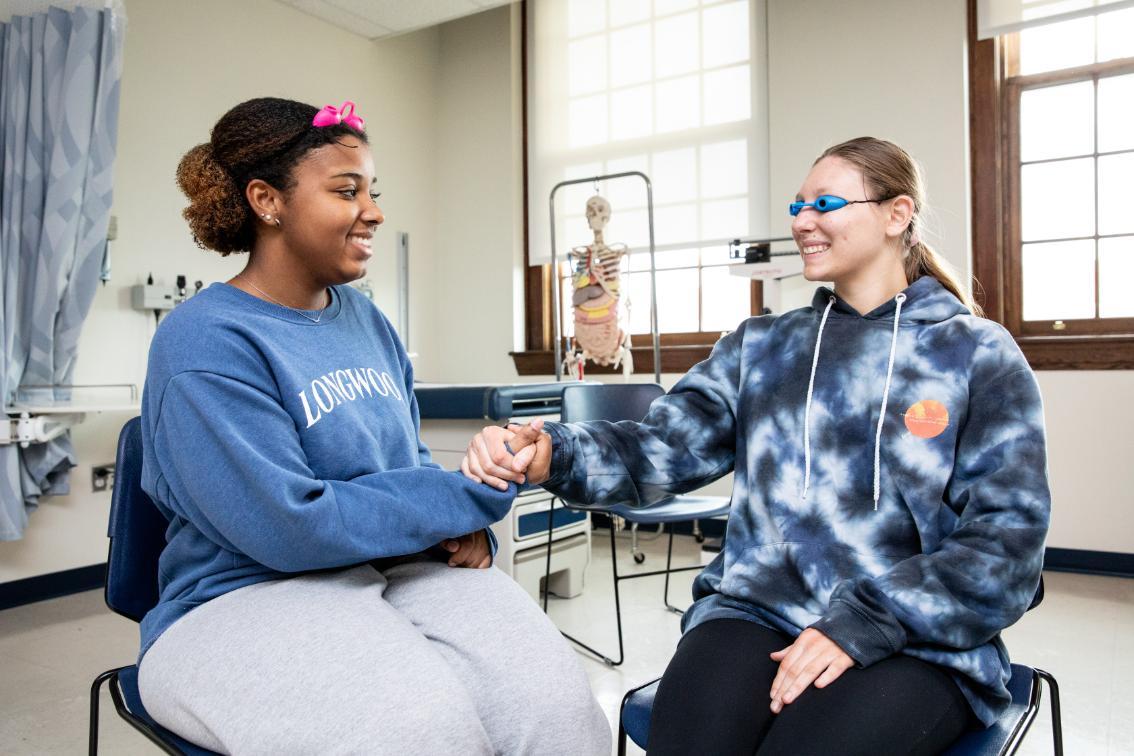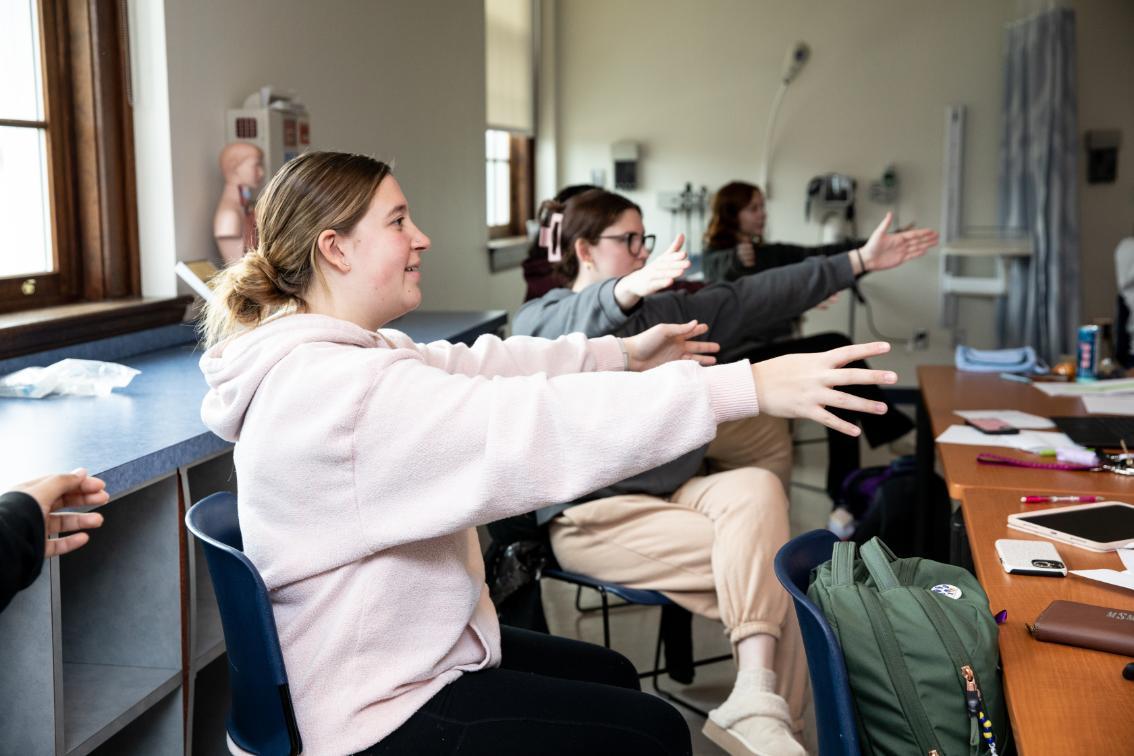

As an EMT in her hometown of Stafford, Virginia, Annie Devine ’26 learned how to comfort people in an emergency. As a nursing student at Longwood, she has learned how to offer a sense of safety to counter the pervasive fear people with dementia can feel as they navigate each day.
Devine learned this and many other skills in Getting Connected: Experiential Dementia Skills Training, a one-day program for nursing students designed to help them care for the growing number of Americans living with dementia.
According to the Alzheimer’s Association, dementia is the seventh-leading cause of death in the United States. The population at highest risk—people 65 and older—is estimated to grow from 58 million in 2022 to 82 million by 2050.
In order to change the way we care for people living with dementia, we have got to start with nursing education.
Dr. Pamela Compton-Dooley, assistant professor of nursing Tweet This
Even with so many people experiencing dementia, most nursing students across the country—and many experienced nurses, as well—don’t feel comfortable or confident in caring for them, said Dr. Pamela Compton-Dooley, assistant professor of nursing at Longwood. “In order to change the way we care for people living with dementia, we have got to start with nursing education,” she said.
Getting Connected—launched in fall 2021 by nursing department chair Dr. Kim Little, Dr. Compton-Dooley and adjunct faculty member Marion Kyner—puts those words into action.
The six-hour training focuses on how brain changes in dementia impact reasoning, language and vision. It’s based on the Positive Approach to Care model developed by Teepa Snow (a North Carolina-based dementia-care specialist) and is divided into lectures, videos, group discussions and role-playing activities.

As of June 2024, 287 nursing students have graduated with skills they will put into practice regardless of where they end up working, said Compton. “All nurses are going to encounter dementia patients, whether they’re working in a doctor’s office, a hospital or in a long-term care facility,” she said.
Kyner said students find the role-playing exercises most helpful. She agrees. “Knowledge does not give you skills. It’s the experiential part that actually develops skills,” she said.
In one of the role-playing activities, students wear goggles that simulate the loss of peripheral vision—a condition associated with mid-later stages of dementia—while other students get right up in front of their faces. Xavier Munoz ’26, of Colonial Heights, Virginia, found the exercise instructive. “It was scary,” he said. “You went from not being able to see them to just, boom, right there.”
After the training, students have two related clinical rotations—typically four weeks long each—in a long-term care facility and an acute care unit in a hospital. During his rotations, Munoz built a better rapport with his patients by being mindful of his positioning, movement and body language as well as using a calm, friendly voice. Because they felt at ease instead of intimidated, his patients were able to be more active in the conversation, which increases a person’s level of care, he said.
Kyner, Compton-Dooley and Little currently are collecting data via student surveys to learn more about students’ comfort, confidence and competence with providing dementia care both before and after the training.
That’s why I feel so passionately about the training, because of how I watched it transform our relationship with our grandmother.
Annie Devine ’26 Tweet This
For Devine, the opportunity to put her training to work has come sooner than expected.
When her grandmother’s behavior began to change in ways indicating the onset of dementia, Devine taught her family members—none of whom are in the medical field—what she had learned. She was surprised by how easy it was to teach them these simple and meaningful skills.
“That’s why I feel so passionately about the training,” she said, “because of how I watched it transform our relationship with our grandmother.”
